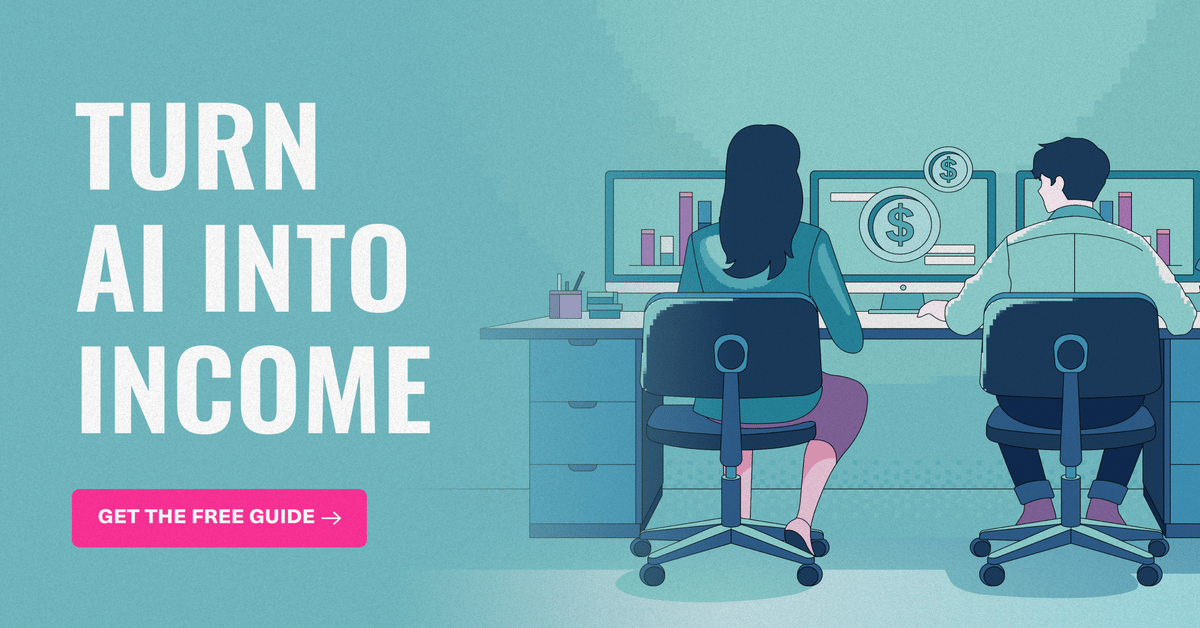- Enterprise AI Daily
- Posts
- AI at Work: Claude’s Economic Crystal Ball, a 3-Day Week, and Etsy Gets Smarter
AI at Work: Claude’s Economic Crystal Ball, a 3-Day Week, and Etsy Gets Smarter
New data shows where GenAI is replacing jobs, Zoom’s CEO says we’ll only need to work three days a week (eventually), and Etsy adds AI tools for sellers.

Not only are the robots among us, they’ve arrived with spreadsheets.
Anthropic dropped a heavyweight report analyzing how AI is already reshaping the U.S. labor market, from job listings to geographic impact. While Claude 3.5 is becoming a desk jockey in dozens of industries, companies like Zoom and Etsy are rethinking how humans fit into the picture. And Google is not all harmony in the AI revolution.
Today’s briefing unpacks the shifting power dynamics between AI, labor, and enterprise, and why your talent strategy might need a reality check.
Turn AI Into Your Income Stream
The AI economy is booming, and smart entrepreneurs are already profiting. Subscribe to Mindstream and get instant access to 200+ proven strategies to monetize AI tools like ChatGPT, Midjourney, and more. From content creation to automation services, discover actionable ways to build your AI-powered income. No coding required, just practical strategies that work.
Claude’s Labor Market Watchdog

US states’ Claude adoption relative to their working age populations. Image: Anthropic
Anthropic just released the September 2025 update to its Economic Impact Index, and it reads like a heatmap of job disruption. To build its report, they evaluated Claude 3.5’s ability to perform real-world occupational tasks sourced from the U.S. Department of Labor’s O*NET database. Each task was scored by human experts to assess how well the model could complete it. These exposure scores were then linked to trends in U.S. job postings, using a large database of publicly available job ads. The result is a clear, data-driven view of where generative AI is already reshaping hiring patterns by industry, by geography, and by role.
And the findings are clear: GenAI isn’t hypothetical, it’s already influencing what jobs are being posted, where, and how often.
Here’s the short version:
AI is suppressing job listings in fields like graphic design, data entry, and paralegal work, roles where GenAI excels at first drafts, form-filling, and pattern-matching.
It’s boosting listings in AI engineering, software development, and, surprisingly, in roles that require empathy or physical presence (think nursing, construction, customer care).
Geographically, high-wage metro areas are seeing steeper declines in job posting growth, suggesting high-salary knowledge work is more exposed to AI automation than previously assumed.
Some wild stats from the report:
Job listings are down 20% in roles Claude can do “with little to no supervision.”
Counties with the highest average wages saw a 23% sharper decline in AI-exposed white-collar job postings than low-wage counties.
Roles Claude excels at now make up more than a third of all U.S. job postings, meaning GenAI is encroaching on a significant chunk of the labor market.
Why this matters for enterprise:
You may already be over-indexing on “AI augmenting humans” and underestimating replacement dynamics.
Geography matters more than ever; AI’s impact isn’t uniform, and your HQ zip code could dictate how disrupted your teams get.
Talent pipelines need a refresh. HR leaders should be integrating AI literacy into every role, not just the technical ones.
Claude is full on modeling AI and labor economist-style right before our eyes.
Quote from the Field
“You probably don’t need to work five days a week.”
– Zoom CEO Eric Yuan
In a Fortune interview, Yuan shared his vision for the future of work:
A three-day workweek powered by AI co-workers
Humans spending more time being “creative, strategic, and purposeful”
A radical rethink of what productivity means in a post-AI org
Love it or side-eye it, it’s a signal: enterprise leaders are beginning to reshape workforce expectations based on AI capabilities, not just productivity metrics.

Enterprise AI Daily // Created with Midjourney
News Roundup
Google quietly fires hundreds of AI workers amid union push
Internal documents and leaked chat logs show Google laid off scores of AI contractors during disputes over working conditions and demands for protections. The AI boom may be fast, but it’s not always fair.
Read more →Zoom’s CEO says we’ll soon only work 3 days a week
Eric Yuan is doubling down on automation and human-AI collaboration, predicting a world where AI handles grunt work and people focus on creative leadership. The catch: You need the right AI strategy now to get there.
Read more →Etsy launches AI writing and search tools for sellers
Etsy is rolling out new AI-powered tools to help sellers write product descriptions and optimize for discovery. It’s a small business play with big enterprise implications: better metadata = better margins.
Read more →
TL;DR:
Anthropic’s Economic Index reveals real-time AI impact by geography and job function, and white-collar roles are taking a hit.
AI exposure is reshaping hiring, compensation, and talent location.
Zoom’s CEO is betting on a 3-day workweek powered by AI; time to rethink your team’s workload and structure.
Worker protections are now part of the AI conversation, as seen in Google’s contractor disputes.
Etsy’s AI update shows even SMB platforms are scaling smarter and enterprises should take note.
Stay sharp,
Cat Valverde
Founder, Enterprise AI Solutions
Navigating Tomorrow’s Tech Landscape Together

